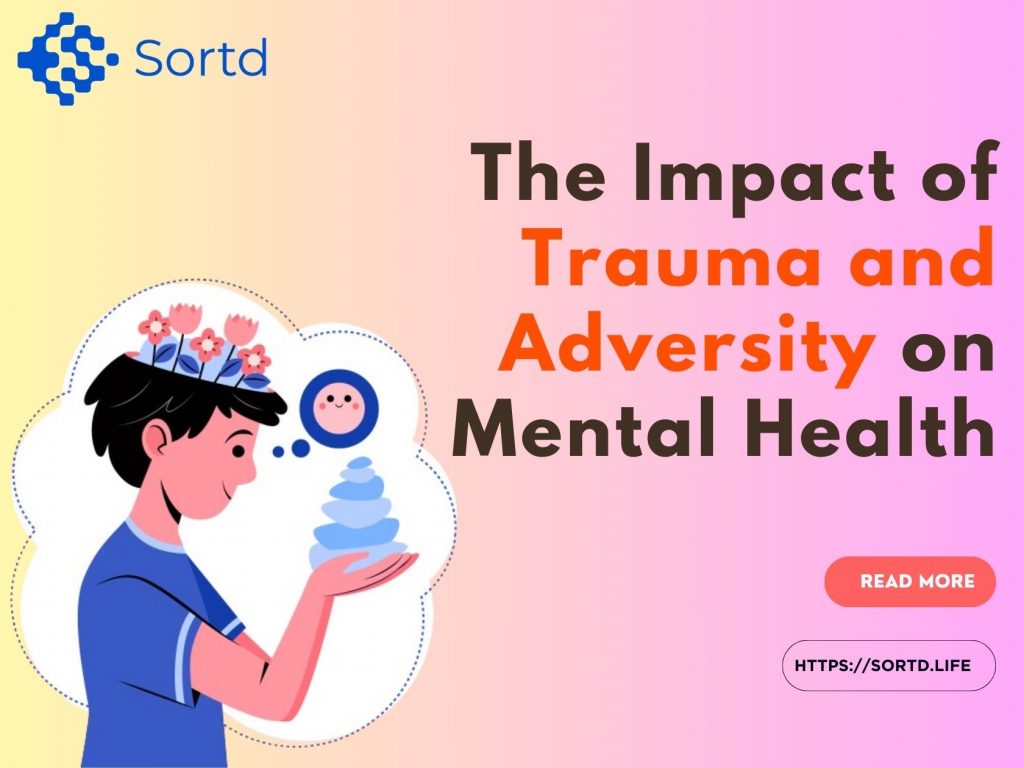
Trauma and adversity can cast a long shadow on one’s mental health, leaving profound and lasting effects. Understanding the impact of these experiences is crucial for fostering empathy, support, and effective interventions. In this blog, we’ll explore how trauma and adversity can influence mental health and discuss ways to navigate the path toward healing.
1. Defining Trauma and Adversity:
Trauma refers to distressing experiences that overwhelm an individual’s ability to cope, often leaving lasting emotional scars. Adversity encompasses a broader range of challenging life events, from loss and financial strain to discrimination and chronic stress.
2. Emotional and Psychological Consequences:
The emotional toll of trauma and adversity can manifest in various ways. Individuals may experience heightened anxiety, depression, or post-traumatic stress disorder (PTSD). Emotional responses can range from numbness and detachment to overwhelming fear and sadness.
3. Impact on Brain Function:
Neuroscientific research indicates that trauma can alter brain function, particularly in areas related to stress regulation and emotional processing. These changes may contribute to heightened sensitivity to stressors, difficulty regulating emotions, and challenges in forming secure attachments.
4. Long-Term Physical Health Effects:
The toll on mental health extends to physical well-being. Chronic stress resulting from trauma and adversity has been linked to an increased risk of cardiovascular issues, autoimmune disorders, and other physical health concerns. The mind-body connection underscores the holistic impact of these experiences.
5. Relationship Dynamics:
Trauma and adversity can strain relationships, leading to difficulties in forming and maintaining connections. Individuals may struggle with trust issues, fear of vulnerability, or challenges in communication. Supportive relationships, however, can also serve as crucial buffers against the negative impacts of trauma. Find effective couples therapy near me
6. Coping Mechanisms and Unhealthy Habits:
In an attempt to cope with emotional pain, individuals may turn to unhealthy coping mechanisms such as substance abuse, self-harm, or disordered eating. Understanding these behaviors as adaptive responses to overwhelming experiences is key to guiding individuals toward healthier alternatives.
7. Resilience and Post-Traumatic Growth:
While trauma can have devastating effects, many individuals demonstrate resilience and even experience post-traumatic growth. This refers to positive psychological changes that emerge as a result of navigating and overcoming trauma. Building resilience involves accessing support, fostering a sense of purpose, and developing coping skills.
8. Seeking Professional Help:
Professional mental health support is instrumental in addressing the impact of trauma and adversity. Therapeutic approaches such as cognitive-behavioral therapy (CBT), eye movement desensitization and reprocessing (EMDR), and trauma-informed care are tailored to help individuals process and heal from traumatic experiences.
9. Creating Safe Spaces for Healing:
Communities, workplaces, and educational institutions can contribute to healing by creating safe and supportive environments. Understanding the prevalence and impact of trauma fosters compassion, reduces stigma, and encourages open conversations about mental health. Also read Navigating the Chill: Understanding the Effects of Winter on Mental Health
10. Advocacy for Systemic Change:
Addressing the impact of trauma and adversity requires broader societal efforts. Advocating for systemic changes, including trauma-informed policies, accessible mental health services, and support structures, is essential for creating a more empathetic and inclusive society.
Conclusion
Recognizing the profound impact of trauma and adversity on mental health is the first step toward fostering healing and resilience. By promoting understanding, providing support, and advocating for systemic change, we can contribute to creating a world where individuals affected by trauma can find the empathy, resources, and opportunities for recovery they deserve. Connect with an expert mental health therapist near me
